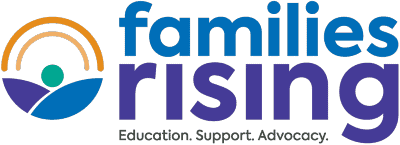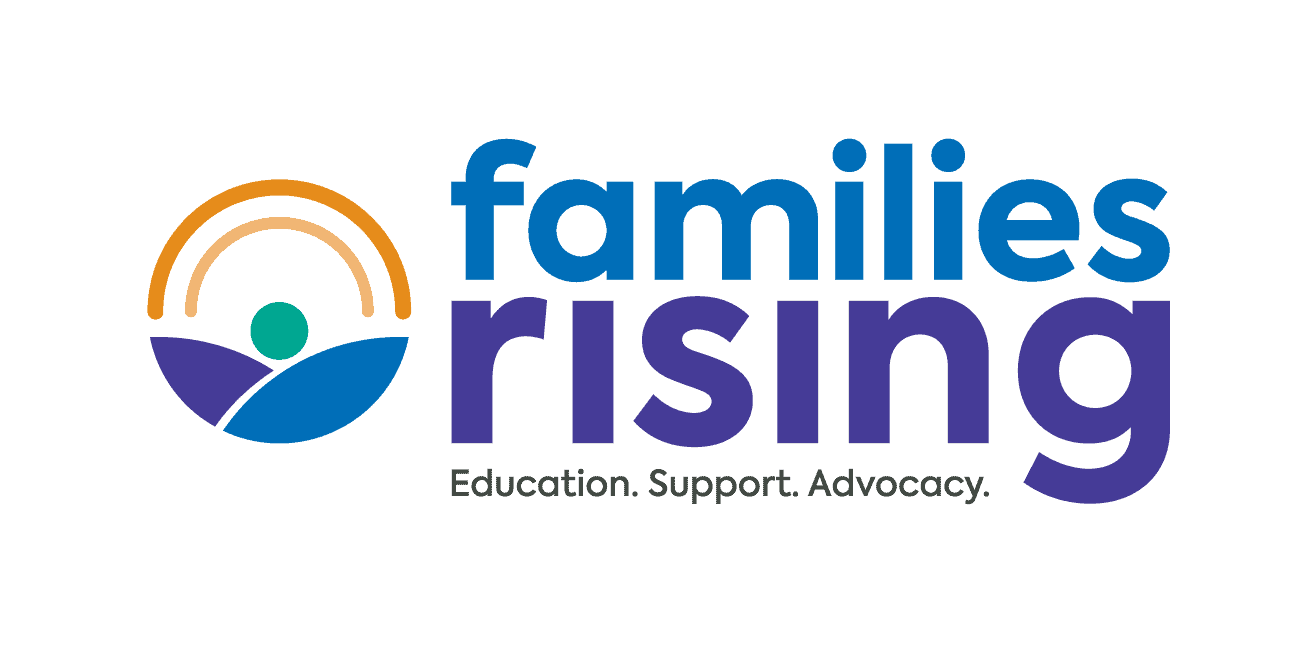
Parents who adopt children with special needs from the public foster care system take risks that other parents do not assume. Specifically, they run the risk that the child may not be able to live within a typical family setting throughout childhood and adolescence. These children come to their adoptive families with a multitude of significant, lifelong problems including: reactive attachment disorder, fetal alcohol syndrome and/or effect, learning disabilities, sexual aggression, and mental health diagnoses. Most adoptions are successful, however research shows that three to ten percent of all older child adoptions will end in dissolution. More will remain intact, but with the child placed in long term residential care.
Each of these children deserve a loving family, but love and nurturing cannot erase the problems that began in their early lives. Adoptive parents can provide a stable and loving family, as well as therapeutic alternatives on an outpatient basis. But sometimes the social, emotional, and cognitive deficiencies caused by a child’s painful past (and other risks factors) require an adoptive parent to seek outside help.
The two most common scenarios include:
- Temporary state agency custody or private placement for residential treatment or therapeutic foster care where the hope and intent is for the child to remain a member of the family; and
- Legal dissolution of the adoptive placement after finalization, resulting in the child’s return to the custody of the state.
Although child welfare professionals, adoptive parents, and child advocates cringe at the thought, situations arise where it is in the child’s best interest to be separated from the adoptive family for inpatient treatment, or, if the child poses a danger, to remove the child for the safety of other family members. In some cases, adoptive parents maintain their parental rights when the child goes back into the state’s care, according to state law. However, in other jurisdictions, parents must terminate their parental rights in order for the child to receive necessary treatment.
While these decisions are difficult, adoptive parents should not be penalized for them. But all too often, families are punished. Temporary separation or disruption is painful enough without the added sorrow and indignity of misplaced blame and misdirected financial responsibility.
When children return to the care and custody of the state agency for treatment or as a result of an adoption dissolution, one obvious and legitimate concern for individuals involved in the system is how to fund the cost of care. In many states, children with special needs who receive adoption assistance (subsidies) have financial resources that agencies desire to use to fund the treatment. In some cases, state agencies have assessed families of adopted special needs children with child support payments after referring these families to the agency’s office of child support enforcement.
The decision by state child support enforcement units of whether or not to pursue child support payments from adoptive families has caused much distress on the part of parents who adopt our country’s most vulnerable children. Traditionally, these enforcement units work with biological families whose children are placed in the public child welfare system. These children are removed from their homes due to abuse and neglect at the hands of the biological parents, among other reasons.
From the vantage point of a national child advocacy organization, it is a real tragedy when adoptive parents are first encouraged to adopt the foster children in their homes, and then penalized for doing so. Adoptive parents are not responsible for a child’s damaging experiences during the formative years, or for risk factors such as pre-natal drug exposure. Instead, these families strive to pick up the pieces after the abuse and neglect has occurred.
As a result, Families Rising strongly cautions state agencies against opening child support enforcement proceedings when adopted children are involved, and at a minimum, to consider adoptive families in a completely different context than traditional cases handled by child support enforcement units.
Federal Guidance
Child support enforcement cases made on behalf of foster children who were subsequently adopted with adoption assistance payments (also known as adoption subsidy) have been addressed (at least in part) in a few federal laws and policies.
- Section 473 of the Social Security Act — Section 473(a)(3) states that the subsidy agreement can be readjusted periodically, with the concurrence of the adoptive parent. No state agency can simply nullify an adoption assistance agreement and automatically stop the monthly financial payments or services. The adoption assistance agreement is a signed, legal document that binds both the state Title IV-E agency and the adoptive parents to the stipulations of the individual contract.
- Child Welfare Policy Manual (8.2D.5) — The manual specifically addresses cases where adopted children (with Title IV-E Adoption Assistance) reenter the foster care system. It states that agencies cannot automatically suspend the adoption assistance payment for the duration of an adopted child’s placement in foster care.
- ACYF-PIQ-98-02 — The federal Children’s Bureau released this policy interpretation question (PIQ) in 1998. It states that federal law allows the court to deviate from the presumptive amount determined pursuant to the State child support guidelines. This means that state child support enforcement offices have flexibility in whether to charge the adoptive family with child support payments. In terms of the adoption assistance payment made to adoptive parents, the PIQ states that “the State may determine that payments for family therapy, tuition, clothing, maintenance of special equipment in the home, or services for the child’s special needs are acceptable forms of financial support. Consequently, the State may continue the adoption assistance subsidy, if it determines that the parent is, in fact, providing some form of financial support to the child.”
Arguments Against Charging the Adoptive Family With Child Support Payments
- Federal policies clearly state that adoptive parents should not be forced to lower their standard of living to bring a special needs child into their life (Section 8.2A.2 of the Child Welfare Policy Manual). Instead, subsidy programs were created (and continue to exist) to eliminate the disincentives to adopting children with special needs.
- Families who adopt children with special needs save the system money since adoption subsidy payments are considerably lower than the monthly and administrative costs of foster care. If a child must return to the system years after finalization, the adoptive parents have saved the state for the time that child was able to live in a family setting. If the family had not done so, the costs of keeping the child in care, whether in traditional foster care or an institutional setting, would be significantly greater.
- When children return to the system years after the adoption finalization and families are financially penalized, what message does this send to these parents who are a potential resource for waiting children and to other foster or prospective adoptive families in the state? Due to increased attention to state budgetary cut backs, parents are already cautious about expecting the state agency to keep their promises and provide the on-going funding and services necessary to maintain children with special needs in adoptive homes. When parents learn that states have charged adoptive families with child support payments, state agencies will lose the best resources they have for their waiting children—experienced foster/adoptive families.
- For adoptive parents, there are additional costs associated with out of home care than many people realize. These vary from situation to situation and state to state. Costs will usually be higher for parents whose children are in a private placement than for those who are in temporary state agency custody, but might include:
- legal costs associated with court-ordered placement for the child;
- cost of a temporary emergency stay at a children’s shelter or acute care wards while awaiting admission to regional treatment centers;
- lost hours at work due to the time demands of paperwork and admissions procedures;
- preparing the child for admission which often requires a full physical exam and report, psychological and educational testing, and a wardrobe with specific required items;
- initial transportation and visitation costs;
- clothing and shoes;
- typical expenses associated with birthdays and holidays;
- long distance phone calls;
- trips and lost work time for required family therapy sessions;
- charges related to property damaged, destroyed, or stolen by the child; and
- tuition (in some cases) or fees for continued treatment after Medicaid has been maxed out.
Conclusion
Families Rising is committed to supporting families who adopt children with special needs from the foster care system. We would strongly discourage state agencies from filing child support cases with regard to these families, for the reasons addressed above. At a minimum, it is appropriate and necessary to consider adoptive families separately and distinctly from traditional child support enforcement cases.
For state-specific information, please contact Families Adoption Subsidy Resource Center at 800-470-6665 / 651-644-3036 or adoption.assistance@wearefamiliesrising.org. The Center is graciously funded by the Dave Thomas Foundation for Adoption.
Families Rising appreciates the assistance of Rita Laws with this fact sheet.


